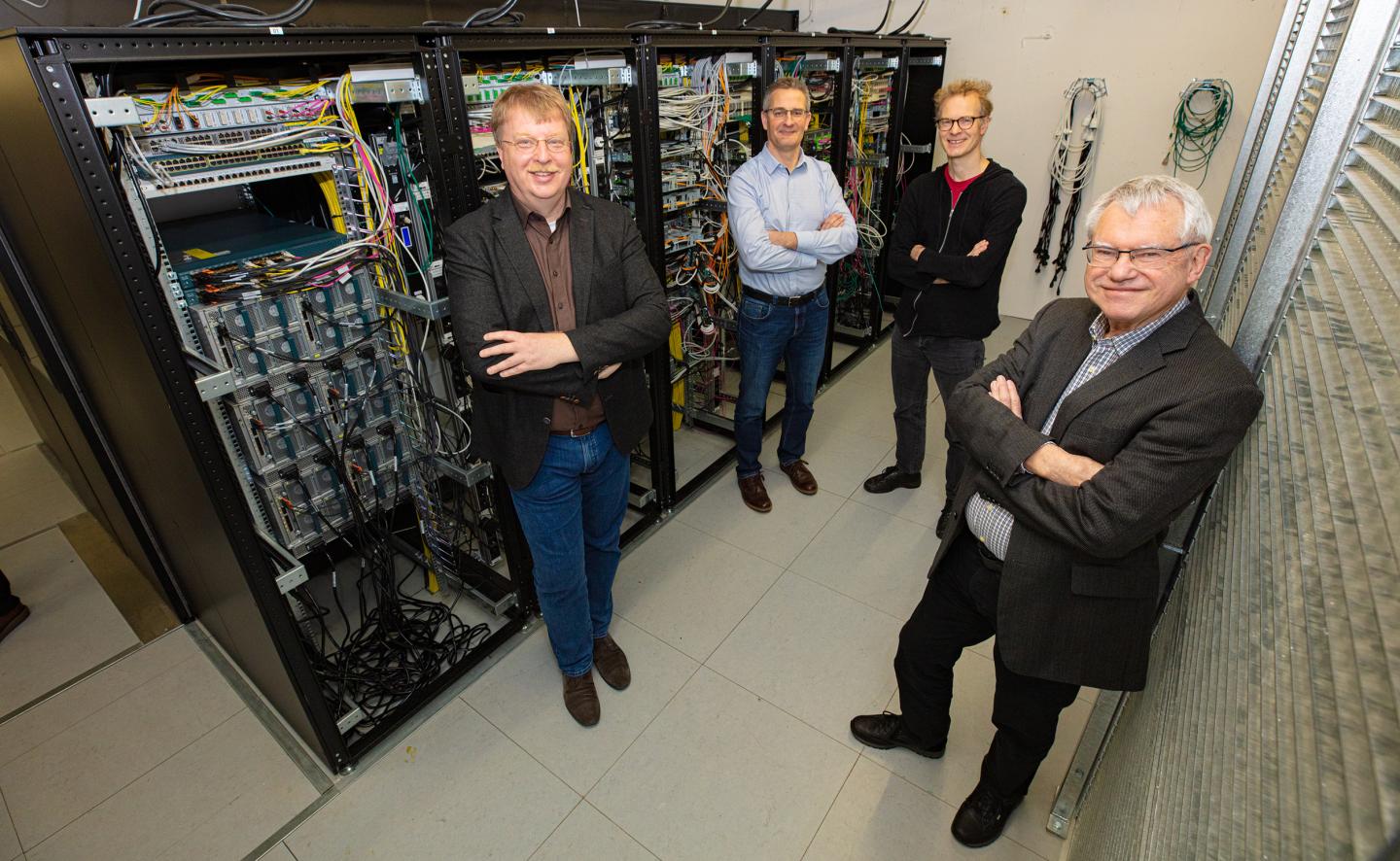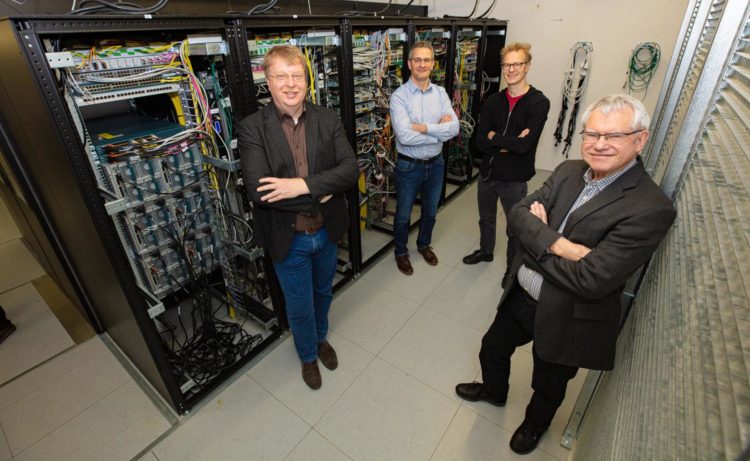Further funding for the project based in Bielefeld five years after its start

Credit: Photo: Bielefeld University/M.-D. Müller
It should be possible for researchers in the life sciences to draw on powerful technological services throughout Germany when they need to analyse large data sets. This is why the Federal Ministry of Education and Research (BMBF) invested about 80 million euros in a major large-scale project: the German Network for Bioinformatics Infrastructure (de.NBI). Bielefeld University is coordinating the project. On Thursday 13 February, scientists and politicians celebrated the fifth anniversary and the previous successes of the network with a symposium in Berlin. These successes include a distributed cloud infrastructure, eight service centres throughout the nation, and 40 participating bioinformatics groups. The BMBF has now announced continued funding for the de.NBI. Until the end of 2021, Bielefeld University alone will have up to 5.3 million euros at its disposal to continue the project.
The administration office of the de.NBI (pronounced ‘Dennbi’) is located at Bielefeld University’s Center for Biotechnology (CeBiTec). Up to now, it has brought together a total of 250 scientists who are cooperating in building up the bioinformatics infrastructure throughout Germany. ‘The progress they have made since 2015 is the topic of the symposium,’ says the de.NBI coordinator Professor Dr Alfred Pühler.
The network offers researchers in the life sciences an IT infrastructure that can be used to analyse data over de.NBI’s own computer network. ‘We took an innovative approach here and set up a national cloud at what are now six locations,’ says Professor Dr Alexander Sczyrba, head of the Computational Metagenomics research group at Bielefeld University’s Faculty of Technology. ‘This cloud is available free of charge to all researchers in the life sciences. It is restricted to Germany, thereby ensuring that no sensitive research data leave the country.’ More than 100 bioinformatics programs are available to researchers in the life sciences with which to analyse their data.
However, computing power and software alone would not be enough to support bioinformatics research. ‘What is decisive is to enable researchers to acquire the necessary competencies to handle the technology and to support them with services,’ says Alfred Pühler. The network has succeeded in setting up eight service centres throughout Germany in which 40 groups of bioinformatics experts offer their IT services, advice, and training courses.
The centres focus on different fields covering, among others, human, plant, and microbial bioinformatics. ‘Bielefeld runs the service centre for microbial bioinformatics focusing on the bioinformatic analysis of all molecular data on micro-organisms but also on microbial communities,’ says Professor Dr Jens Stoye, head of the Genome Informatics research group at the Faculty of Technology. Research at Bielefeld University also profits from the de.NBI according to Professor Dr Martin Egelhaaf, Bielefeld University’s Vice-rector for Research and Research Transfer. ‘Thanks to the possibilities provided by the network, our scientists can perform bioinformatic analyses more quickly and with fewer complications than before. That applies to the greatest variety of disciplines–from biotechnology to medicine,’ says Egelhaaf.
‘Each year, the network organizes more than 80 training courses on how to use the bioinformatics programs. This means that we have trained more than 6,000 scientists since the beginning of the initiative,’ says Professor Dr Andreas Tauch. He heads the de.NBI administration office that coordinates the network’s services and training courses and refers users to the specialized service centres.
‘Bielefeld University has become an outstanding centre for bioinformatics infrastructure in Germany,’ concludes the Network Coordinator Alfred Pühler. He emphasizes that the de.NBI is designed to become a permanent structure. ‘Scientists in the life sciences depend on having a stable central infrastructure so that they can process their enormous data sets and communicate them in uncomplicated ways,’ says Pühler. Currently, they are working on a way to make the network permanent. ‘The Federal Ministry of Education and Research (BMBF) has agreed to finance the network until the end of 2021 to give more time for these discussions.’
###
Media Contact
Dr Alfred Pühler
[email protected]
49-521-106-8750
Original Source
https:/





